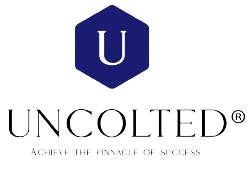| cybersecurity | UNCOLTED BLOG

The rising threat landscape - beyond imagination
Today’s cybersecurity threats have grown not only in volume but in sophistication. Cybercriminals leverage advanced tactics, including social engineering and AI-based attacks, to target companies. For businesses, the effects can be devastating: data loss, revenue impact, reputational damage, and even regulatory fines. As hackers develop new strategies, companies need to stay several steps ahead, building resilience and adopting frameworks that set best-practice standards for cybersecurity.
Consider a recent example
A global energy firm suffered a ransomware attack that disrupted operations and caused millions of dollars in damages. Beyond the financial toll, the breach exposed sensitive client information and impacted critical infrastructure. Investigations revealed that outdated security protocols and a lack of employee training contributed to this incident. With just a few key measures—stronger access controls, regular system updates, and adherence to a cybersecurity framework—the firm could have minimized the damage or prevented the breach altogether.
A Path to Security and Resilience - Consider deploying security frameworks such as iso 27001
ISO (International Organization for Standardization) frameworks, like ISO 27001 for information security management, provide businesses with a structured approach to managing and mitigating cyber risks. These standards offer guidelines for establishing, implementing, and continuously improving a company’s security measures. By adopting ISO frameworks, organizations can systematically address vulnerabilities, ensuring that employees, processes, and technologies align to protect sensitive data and systems.
Why ISO Frameworks Matter
- Risk Mitigation: ISO frameworks emphasize proactive risk assessment, helping companies identify and address potential threats before they cause harm.
- Compliance and Trust: Adhering to ISO standards signals to clients and partners that a company prioritizes cybersecurity, building trust and meeting regulatory requirements.
- Continuous Improvement: With ISO, cybersecurity is not a one-time setup. Frameworks like ISO 27001 require regular audits and updates, ensuring defenses evolve alongside new threats.
- Cost-Effective Security: Addressing cyber risks reactively can be expensive and chaotic. ISO provides a structured, cost-effective approach to resilience that saves money and resources in the long run.
The Future of Cybersecurity
As cyber threats grow more complex, companies must move from a reactive to a proactive stance. ISO frameworks empower organizations to build resilient defenses and withstand cyber incidents, ensuring their continuity and reputation. By adopting these frameworks, businesses can confidently face the future, knowing they’re prepared for whatever comes next.
In the face of a rapidly changing cyber landscape, adopting a standardized, proactive approach is no longer optional—it’s essential. Cybersecurity resilience through ISO frameworks can transform security into a strategic asset, protecting both company data and its future.
